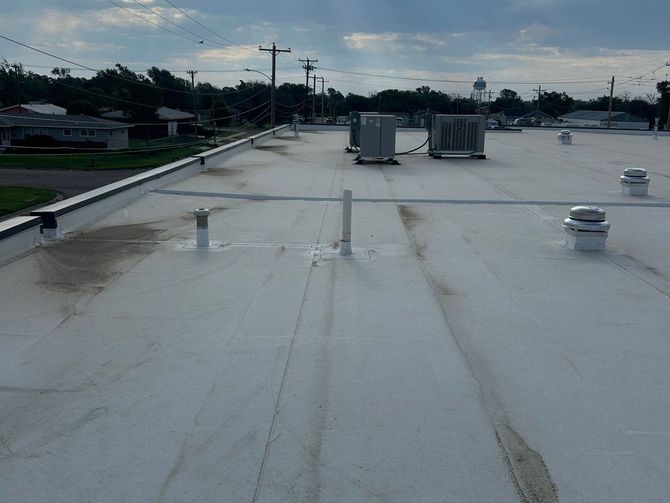When it comes to your business property, the roof is one of the most important aspects to consider. Not only does it protect your building from the elements, but a strong, durable roof can save you significant repair costs and even improve energy efficiency. In this guide, we’ll explore the best materials for commercial roofing and why investing in quality roofing is essential for long-term success.
Assessing Your Commercial Roofing Requirements
Commercial roofs face different challenges compared to residential roofs. Factors like climate, building structure, and the nature of your business operations all influence what type of roofing system is ideal. Whether you're managing a warehouse, an office building, or a retail store, understanding your specific needs will ensure that you choose the right roofing solution.
Top Commercial Roofing Materials
Several roofing materials are commonly used in commercial buildings. The best choice depends on your specific needs and budget. Each material offers distinct advantages, ensuring the right option for your business.
Option 1: Metal Roofing
Metal roofing is highly favored for commercial properties because of its long-lasting durability and energy-saving features. Available in materials such as steel or aluminum, metal roofs can handle extreme weather and provide excellent leak protection. Plus, their reflective surface can reduce cooling costs during the hotter months.
2. Flat Roofs
Flat roofs are often found on commercial properties due to their cost-effectiveness and ease of installation. These roofs are ideal for buildings with modern architectural designs. Materials like TPO, EPDM, or PVC are commonly used for flat roofing systems, offering great waterproofing and insulation properties. Regular maintenance and proper drainage are key to extending the life of a flat roof.
3. Shingle Roofing
While less common for large commercial buildings, shingle roofing can be an excellent choice for smaller commercial structures or buildings that require a more traditional aesthetic. Asphalt shingles are affordable, easy to install, and available in a variety of styles and colors, though they may not offer the same long-term durability as metal or flat roofs.
Roof Installation Process and Maintenance Tips
Once you've selected the right material for your commercial roof, the next step is installation. Hiring an experienced, licensed roofing contractor ensures the job is done correctly. Proper installation is crucial for preventing leaks and maximizing the lifespan of your roof.
Routine maintenance is crucial for extending the lifespan of your commercial roof. It’s recommended to inspect the roof twice a year, especially following severe weather. Look for issues such as missing shingles, cracks, or standing water. Cleaning gutters and removing debris will help prevent damage.

How Investing in a Quality Roof Protects Your Business
A good-quality roof is a sound investment. It offers protection from leaks that can cause expensive damage to your building and inventory. It also boosts energy efficiency, making your property more sustainable and lowering costs. A well-maintained roof can even increase your building's value and prevent costly repairs in the future.
Conclusion: Choosing the Right Commercial Roofer
Choosing the right roofing contractor is just as important as selecting the best materials. Look for a licensed, experienced roofer who understands commercial properties and can help you select the best solution based on your business needs. A great contractor will also guide you through the installation and maintenance process to keep your roof in top shape for years to come.
Are you ready to upgrade your commercial roof? Contact us today to learn more about our roofing solutions and get a free consultation!
#CommercialRoofing #RoofingMaterials #BusinessProtection #MetalRoofing #FlatRoofing #RoofInstallation #EnergyEfficiency #RoofMaintenance